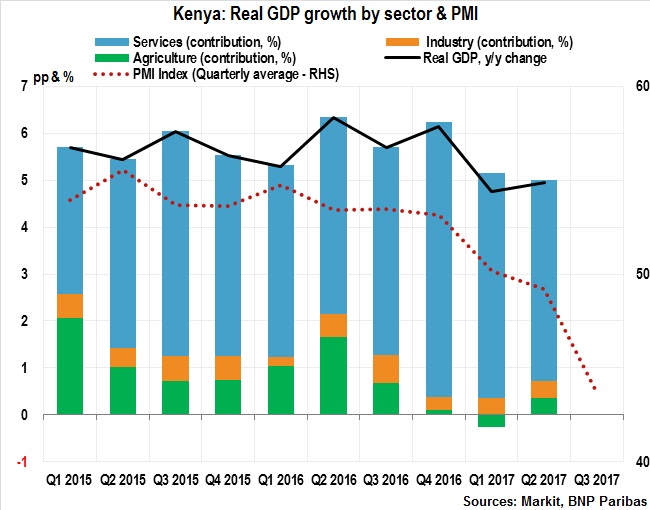Uhuru Kenyatta won the rerun of the presidential elections (the first run had been previously invalidated by the Supreme Court) after Raila Odinga’s withdrawal and despite his call for a boycott.
In a context of pre-electoral political uncertainties, Kenya’s growth has significantly decelerated in the first semester of 2017 following to tertiary slowdown and the weak contribution of both agriculture (victim of drought) and industry. Additionally, the access to credit for private sector has become more challenging since the interest rate capping law was introduced in September 2016. The PMI index - an advanced indicator of business activity - has been contracting since November 2016 with a falling at the end of August which fuels fears that the economy is entering a period of recession.
Considering high downside risks in the short term as well as the urgent need for fiscal consolidation, the new president has in front of him a scenario much less idyllic than that of 2013 and he will have to review the ambitious investments plans which have characterized his previous term. And it would take time to the economy to come back to its growth potential.

by Sara CONFALONIERI
